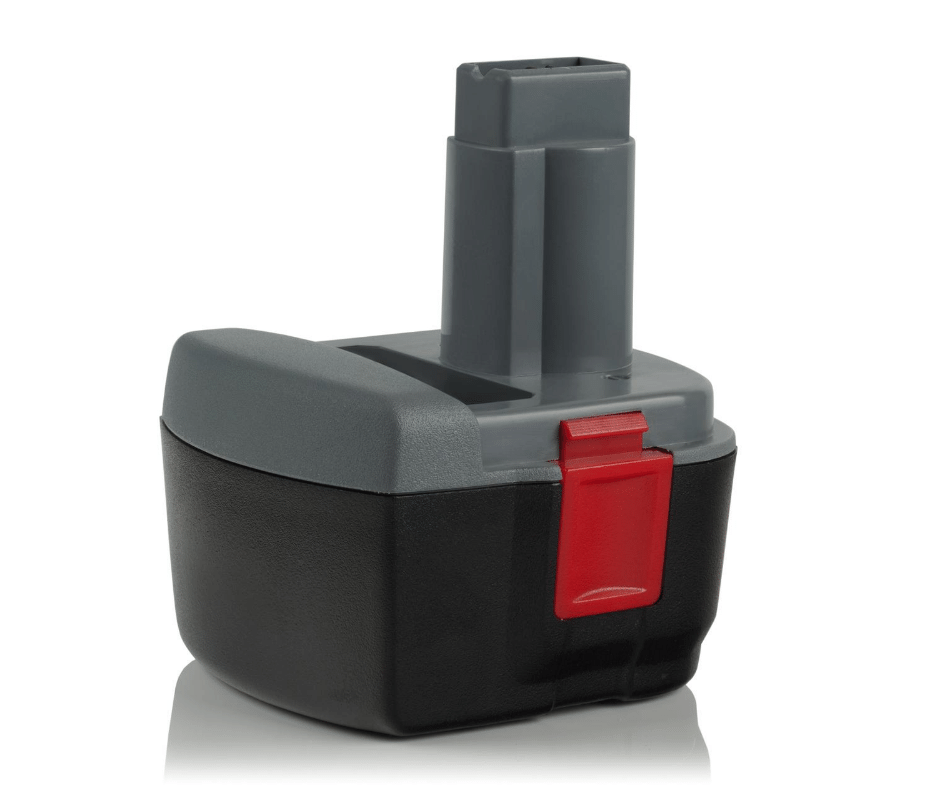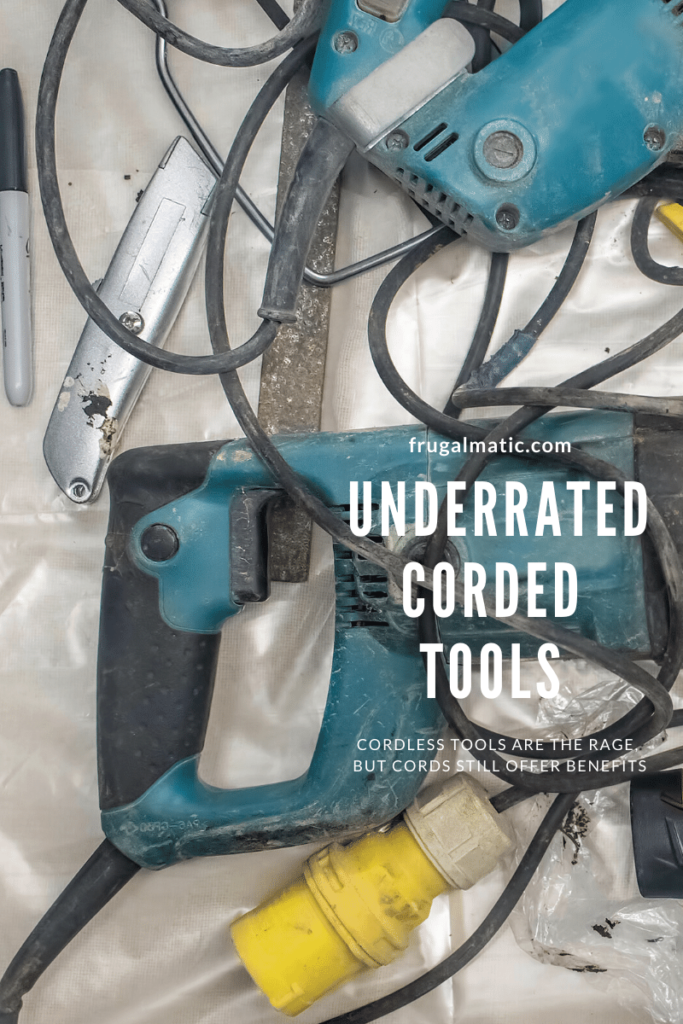This post was last updated on July 27th, 2020 at 12:38 pm
If you consider yourself a frugal person, chances are you also take on a lot of do-it-yourself repairs and projects. And, you probably have a growing collection of tools. I’d bet, too, at least some of them are cordless.
I used to own a cordless drill, though when its battery died, I decided to switch to a corded drill. Retailers seem to want to promote only cordless tools these days, but the more I study cordless tools, the more I’m convinced I don’t need most of them. Corded tools are underrated.
I’m wading into some dangerous territory in poo-pooing an entire category of tools, for which many people have a passion. To be clear, I believe some cordless tools are worth having, namely those used outdoors, such as battery-powered mowers, weed and brush trimmers. Also, if you work in the trades, cordless tool systems are indispensable.
Here are five reasons why corded tools work just fine for the average person and are perhaps preferable to their cordless cousins:

01 Batteries wear out over time
If you use your power tools only occasionally, you might discover after four or five years that your cordless tool’s battery isn’t holding a charge like it once did. Many battery warranties last only two or three years. With a corded tool, you’ll never worry about battery life. The cord provides access to a dependable source of power, the electrical outlet. Corded tools, if properly maintained, can last decades.
02 Batteries are expensive
If you need to replace a battery, replacements can cost almost as much as the tool itself. Cordless tools are a bit like computer printers. When printers run out of ink, you might determine it makes more financial sense to buy a new printer than to replace the ink cartridge. By comparison, corded tools maintain their value because you typically don’t need to replace their parts, except for blades and drill bits.
03 Cordless innovation moves too quickly
It seems counterintuitive to suggest innovation is a bad thing. Cordless tool technology improves constantly, though that also means the cordless tool you bought today might be outdated by the next year. This fast pace of cordless innovations contributes to a glut of new tools, batteries and battery chargers in many workshops.
04 Corded tools pack more power
This is less true today with improvements to brushless technologies, which take less energy to operate. Many DIYers say their cordless tools are as powerful or nearly as powerful as the corded variety. Nevertheless, corded tools are still the surer bet. It’s better to approach a job with a tool you know has enough oomph than one that might come up short.
05 Extension cords aren’t that much of an inconvenience
Companies that market cordless tools often focus on convenience as the top reason to go cordless. And for some people, especially those in trades, the convenience factor makes a big difference. As I assess the projects I’ve undertaken over the past several years, they’ve all been within reasonable distance of an electrical outlet. The one time I wanted a cordless drill was while building a sandbox about 20 feet from an electrical outlet. Having to use an extension cord isn’t, in most circumstances, a problem.
If you’re in the market for a new power tool, consider the corded options and ask yourself how you intend to use that tool. If you plan to mainly use it inside your home near electrical outlets, there’s no shame in going corded.

